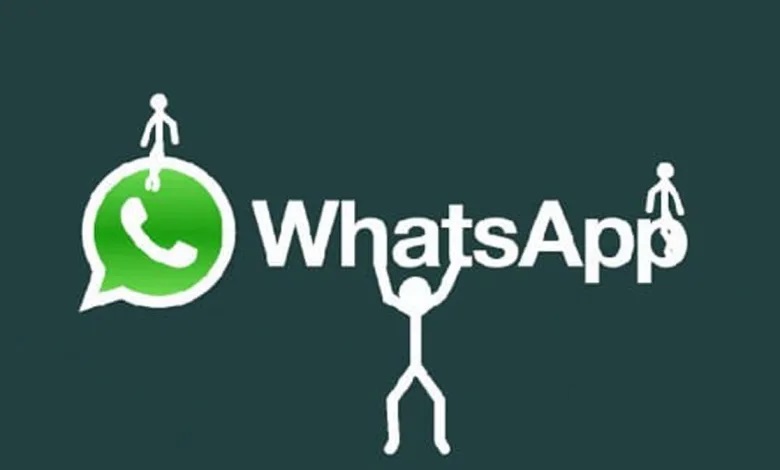WhatsApp, the most used messaging application worldwide, started its journey in 2009. Its founders, John Koum and Brian Acton, created an application that revolutionized the way people around the world interacted. In this feature, we’ll talk about WhatsApp’s 15-year journey, its achievements, and its future.
It is said that dreams are not those that are seen in sleep, but dreams are those, which the dedication to fulfill makes you sleepy. Some people
stop dreaming for fear of not realizing their dreams, but it is like stopping living for fear of death.
But sometimes strange things happen. The non-fulfillment of a dream also puts a person on a path, which they have never thought of
Jane Kom and Brian Acton also had such a dream in their eyes, the non-fulfillment of which turned into a happy interpretation of their lives. It was a dream to get a job in Facebook. He applied for a job at Facebook but his application was rejected
Jane Kom came to the United States from the Soviet Socialist Republic of Ukraine with her mother at the age of sixteen, and was allocated a small two-room apartment in California under a social security program.
According to the program, his father was also supposed to come to America soon, but fate had something else in mind. His father died in Ukraine.
After coming to America, Jane Kom’s mother worked as a babysitter and then as a cleaner in a grocery store. But she also died after a few years in the year 2000 due to cancer.
Now life was not easy for Jane Kom but she did not give up and eventually managed to get a job as an infrastructure engineer at Ernst & Young Ltd, where she met Brian Acton.
Both of them got a job at Yahoo together and stayed with the company for the next nine years. In September 2007, the two quit their jobs together and spent a year touring South America and showing off their skills in the game of Frisbee.
After returning from a long vacation, he applied for a job in Facebook. Jada that we have told in the beginning that working in Facebook was a dream, but it did not come true. At that point, Brian Acton and Jane Kom went their separate ways.
This was the time, when Steve Jobs had created the iPhone. When Jane Kom bought herself an iPhone in January 2009, she realized that app creation had become an entirely new industry thanks to the App Store, which had launched seven months earlier.
That’s when Jain Kom decided to start an app and named it ‘WhatsApp’ which sounds very much like ‘WhatsApp’, if translated into Urdu, it becomes: ‘Kia. happening?’
A week later, on his thirty-third birthday, on February 24, 2009, Jain registered the company in California under the name WhatsApp, and the app was released on the iPhone app store in August of the same year.
Although WhatsApp was not a success initially, Kom did not give up. He didn’t stop dreaming even when he didn’t get a job at Facebook and he was still hopeful.
Initially, WhatsApp was a simple messaging app that allowed users to send messages over the Internet. However, its simplicity, speed, and ad-free experience quickly made it popular. Soon people in Jainkom area started using WhatsApp for messaging instead of SMS.
Acton, a friend of Jane Kome, was by then unemployed, at Kome’s insistence he joined the new company and became a co-founder of the company, as he arranged the initial funding of $250,000 for the company and It wasn’t easy, but Acton was able to convince his five friends from the Yahoo days to make the investment.
Then soon this app of Jain Kom created a revolution in the world of communication, which captivated the whole world.
On the other hand, two years after the launch of WhatsApp, China’s popular messaging app ‘WooChat’ was also launched.
By the year 2013, the number of WhatsApp users had crossed twenty crores and it was increasing with each passing day.
During this time, WhatsApp saw many changes, such as the ability to send pictures while the introduction of voice messaging was a revolutionary development. Another important development was that during the first year of WhatsApp, the one-dollar annual subscription fee was abolished and all its services became free.
As WhatsApp grew in popularity, it introduced new features. In 2010, it added the facility of group chats, which made it more useful. In 2013, WhatsApp introduced the Voice Messages feature, which allowed users to send voice messages to their friends and family.
WhatsApp introduced the voice calling feature in 2015, which allowed users to make free internet calls. In 2016, the video calling feature was also added, which became very popular especially in countries where international calls were expensive.
Jane Kom, who was once refused to hire by Facebook, was invited to dinner one day by Facebook owner Mark Zuckerberg and offered to buy WhatsApp.
Thus, ten days later, the agreement was reached by Facebook to buy WhatsApp for nineteen billion dollars, which is considered to be the biggest business deal of Facebook so far.
At the same time, Jain Koum also joined Facebook’s board of directors and witnessed the astonishing growth of WhatsApp in the years to come.
This partnership with Facebook set WhatsApp on a path of further growth. Facebook’s resources and infrastructure made WhatsApp more stable and secure, while maintaining its freedom and simplicity.
“In 2014, text messaging was one of the few things you could do on WhatsApp,” writes author Pranu Dixit in an article published on Yahoo News. There were no emojis you could use to react, nor could you send HD videos, GIFs or stickers, until the end of this year you never knew if your message was being read. And voice or video calling facility was not available. Yet more than 50 million people worldwide were using WhatsApp, sending endless messages to friends and relatives without paying any money, instead of paying mobile companies for each message.”
It has been more than fifteen years since the launch of WhatsApp this year. It is not only the most important part of the life of ordinary people, but it has become the most important part of the propaganda machinery of political parties in many countries around the world.
Also in 2018, WhatsApp introduced the WhatsApp Business app for small and large enterprises. Millions of businesses around the world are reaching customers through WhatsApp, it has become an important way for people and businesses to send money, and publishers, brands and influencers are using it for their own purposes. . And it is now the most important means of communication for those living in two different worlds.
By 2024, WhatsApp has crossed the milestone of over two billion users worldwide. This app is used for messages, calls, and media sharing on a daily basis. In the future, WhatsApp plans to introduce more advanced features, such as better enterprise services and artificial intelligence-based features.
According to an article published in the British edition of the Huffington Post, “In fact, there are only twenty-five countries in the world where WhatsApp is not the leading messaging app.” With 58% of the UK population using WhatsApp on their phone, it is the most popular chat service in the country even more than Facebook Messenger. Other services like Viber tried to make a similar impact in the market, but could not survive for long.”
Thus, WhatsApp was the realization of a person’s dream but now it has become an important need of people all over the world, it has played an important role in making the world a global village.
WhatsApp’s 15-year journey is an example of how a simple and stable idea can revolutionize the world. The vision of John Koum and Brian Acton, and the partnership with Facebook has made WhatsApp the most popular messaging app in the world. During this journey, WhatsApp has achieved many successes





